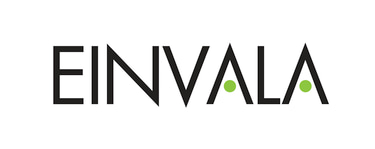Sustainability Regulations for your Business
ESGSUSTAINABILITY REGULATIONS
1/24/20247 min read


In addressing the urgent global climate crisis, governments worldwide have been proactively implementing measures to promote corporate sustainability standards. Among the most notable and widely standardised directives, those emanating from the European Union (EU) hold particular prominence. However, regulations in other continents and regions are likewise becoming increasingly crucial. This article aims to highlight some of the key regulations and acts that can significantly impact numerous companies, with the certainty that they will continue to exert even greater influence in the future. Non-compliance with upcoming regulations carries the risks of financial penalties, diminished brand perception and the loss of customers.
Many regulations are expected to gradually expand their scope to encompass more companies in the future, both within and outside the EU. Therefore, being proactive and understanding future regulations and frameworks is valuable for your business.
The following regulations give a brief overview over risks and opportunities for companies to consider:
Regulations highlighted in this article are:
UN Sustainable Development Goals (SDGs)
Corporate Sustainability Reporting Directive (CSRD)
EU’s Corporate Sustainability Due Diligence Directive (CSDDD)
Carbon Border Adjustment Mechanism (CBAM)
Uyghur Forced Labor Prevention Act (UFLPA)
UN Sustainable Development Goals (SDGs):
The UN Sustainable Development Goals (SDGs), comprising 17 interconnected objectives, serve as a global shared blueprint for fostering peace, prosperity, and sustainability for both people and the planet. Positioned as a framework, these goals present a compelling starting point for companies looking to integrate social responsibility into their business operations.
Key Aspects of SDGs for Businesses:
Foundation of Responsibility:
Business Responsibility: The initial step for companies is to embrace business responsibility, aligning their operations with ethical practices and social responsibility.
Opportunities through Innovation and Collaboration:
Solving Societal Challenges: Beyond responsibility, companies are urged to seek opportunities to address societal challenges through innovation and collaboration. The SDGs provide a framework for companies to contribute positively to global challenges.
Business Case for Private Sector Investment:
Market Opportunities: According to the Business and Sustainable Development Commission, achieving the SDGs opens up approximately USD 12 trillion in market opportunities within the four economic systems examined by the commission.
Benefits and Value Creation:
Financial Value: Implementing SDGs offers businesses the potential to generate new revenue streams by creating opportunities for market differentiation, expansion, and growth. This includes innovation to access emerging markets.
Employer Attractiveness: Enhanced recruitment and retention of talent can be achieved by aligning with the values represented by the SDGs.
Supply Chain Resilience: Improving supply chain sustainability and operational efficiency contributes to increased resilience.
Investor Interest: Companies aligned with SDGs can attract a wider range of investors who are increasingly interested in socially responsible investments.
Licence to Operate: Proactively addressing regulatory compliance and managing risks positions companies ahead of the curve in securing their licence to operate.
Strategic Benefits of SDG Implementation:
The SDGs present an opportunity for businesses to shape, communicate, and report their strategies, goals, and activities.
Companies can capitalise on a range of benefits, from financial value creation to improved market positioning.
In conclusion, embracing the UN Sustainable Development Goals not only aligns businesses with a global agenda for positive change but also presents a strategic framework for sustainable growth, innovation, and enhanced societal impact. By integrating the SDGs into their operations, companies can contribute meaningfully to a better and more sustainable future while unlocking strategic advantages in the process.
Corporate Sustainability Reporting Directive (CSRD):
Originally directed at EU companies with 250 or more employees, publicly traded entities, and international companies operating within the EU, the Corporate Sustainability Reporting Directive (CSRD) aims to standardise corporate sustainability reporting. While its initial focus is on EU-based businesses, the far-reaching effects of this directive will extend throughout the supply chain, creating a growing demand for businesses to align with its principles.
Under the CSRD, companies are required to undertake a double materiality assessment, identifying impacts on both people and the environment, as well as sustainability impacts that have financial implications. This assessment involves setting targets, establishing baselines, and reporting progress toward those targets. The disclosed information spans the entire value chain of the company.
To gain an advantage, companies should focus on key areas such as preparing greenhouse gas (GHG) protocols, enhancing energy efficiency, conducting life cycle assessments, and understanding dependencies. Environmental data, including baseline footprints and primary environmental data from suppliers, is essential. Social considerations, encompassing working conditions, human rights, equal opportunities, and cultural aspects across the value chain, are also crucial.
Investors will appreciate the transparency and adherence to reporting standards, ensuring truthful representations, comparability, and verifiability. As the CSRD moves forward, a digital reporting system is currently under development. Small and medium-sized enterprises (SMEs) are set to begin compliance from January 2026, emphasising the widespread impact and importance of embracing sustainability reporting practices across the business landscape.
EU’s Corporate Sustainability Due Diligence Directive (CSDDD):
The objective of the Corporate Sustainability Due Diligence Directive (CSDDD), approved in December 2023, is to bolster the protection of the environment and human rights both within the EU and globally. This directive imposes obligations on large EU companies concerning actual and potential adverse impacts on human rights and the environment. These obligations extend to the companies' own operations, subsidiaries, and activities conducted by their business partners.
For companies with a turnover exceeding 150 million Euros and more than 500 employees or companies with more than 250 employees and a net turnover in excess of 40 million Euros where at least half of that turnover is generated from certain high-impact sectors. For companies in scope, the CSDDD establishes rules pertaining to obligations regarding actual and potential adverse impacts on the environment and human rights throughout their business chain of activities. This chain encompasses upstream business partners and, to some extent, downstream activities such as distribution or recycling. Non-compliance with the directive will result in penalties, and companies engaging with entities deemed high risk will be required to terminate those relationships. As a supplier, ensuring compliance becomes paramount.
Non-EU companies will also need to comply if they generated more than 150 million Euro's in the EU in the year preceding the last financial year or more than 40 million Euro's in the year preceding the last financial year, where at least half of the company's worldwide turnover was derived from the high-impact sectors.
Carbon Border Adjustment Mechanism (CBAM):
Introduced by the EU, the Carbon Border Adjustment Mechanism (CBAM) is set to serve as a powerful incentive for Vietnamese and Asian exporters to embark on a green transition. Under this mechanism, goods with a substantial carbon footprint will attract additional duties, reducing their appeal for export. Given the potential challenges associated with procuring alternative materials, finding innovative ways to align with future requirements becomes imperative for sustaining conventional business practices. The EU has announced a border-adjustment tax on imports of carbon-intensive goods, including cement, iron and steel, aluminium, fertilisers, electricity, and machinery. However, having this including more products is in discussion. CBAM functions by granting importing companies in the European Union (E.U.) a permissible carbon emissions allowance. Should the allowable limit be exceeded, compliance mandates the acquisition of CBAM certificates, aligning with the Emissions Trading System (ETS). The additional certificates impose a tariff, effectively elevating the production costs of goods.
To adhere to these regulations, E.U.-based companies are obligated to declare their carbon emissions quarterly, based on their production within the E.U., reporting within the ETS framework. In addition to this, compliance with CBAM necessitates the inclusion of carbon emissions from suppliers outside the E.U. for imported goods covered by the regulation. This implies that exporters of covered products into the E.U. become integral to the compliance process. Exporters and suppliers must furnish emission data to their E.U. customers for the regulated products. Therefore, a comprehensive grasp of regulatory requirements extends beyond E.U. importers, involving active participation and data provision from exporters and suppliers to ensure compliance with CBAM. The CBAM went into force by the beginning of 2024.
Uyghur Forced Labor Prevention Act (UFLPA):
The Uyghur Forced Labor Prevention Act (UFLPA), currently enforced in the United States and potentially forthcoming in Europe, poses significant challenges for companies dealing with goods originating from the Xinjiang region, China. This legislation asserts that any products, whether wholly or partially produced in Xinjiang, should be presumed to be the result of forced labour unless proven otherwise by clear and convincing evidence. Consequently, such goods are prohibited from entering the United States. The EU is currently in discussion to implement similar acts.
To meet the requirements of the UFLPA and potential future European regulations, companies must develop specific guidance for importers and establish comprehensive strategies with detailed instructions on how to conduct human rights due diligence and supply chain tracing. Particular attention is given to products such as cotton, tomatoes, apparel, and polysilicon.
Key Actions Required from Companies:
Supply Chain Mapping:
Provide a detailed and comprehensive map of the entire supply chain to trace the origin of goods.
Worker Information:
Furnish a complete list of all workers involved in the production of imported goods subject to the UFLPA's rebuttable presumption.
Proof of Voluntary Labor:
Substantiate that workers were not subjected to conditions indicative of forced labour practices and that their participation was voluntary.
High-Risk Goods and Industries:
Cotton: Due to the significant production of cotton in Xinjiang, extra scrutiny is needed.
Tomatoes: Products derived from Xinjiang tomatoes may face increased scrutiny.
Apparel: Clothing items manufactured in Xinjiang should be subject to thorough examination.
Polysilicon: A key component in solar panels, with 45% of global production originating from Xinjiang.
Implications and Risk Mitigation:
There is a heightened risk of penalties for companies with suppliers or goods from Xinjiang.
Staying proactive and informed on this issue can benefit businesses in the long run.
Comprehensive supply chain mapping and evidence of voluntary labour are essential for compliance.
The burden of proof rests on companies to demonstrate that goods are sustainably sourced from Xinjiang.
In summary, the UFLPA and potential EU actions underscore the importance of due diligence, transparency, and sustainable sourcing. Companies must take proactive measures to comply with these regulations, protect their reputation, and contribute to the broader goal of eradicating forced labour from global supply chains.
Expanding Regulatory Landscape: Beyond the Horizon of Highlighted Regulations
While this article has shed light on prominent regulations, it is by no means comprehensive or covering all the regulations & frameworks that business needs to be aware of.
As these external factors converge, businesses operating in Vietnam and Asia are confronted with the necessity to reassess their operations, recognizing sustainability as an integral component of their strategic approach. The increasing interconnectedness of global markets, coupled with a shared dedication to environmental and social responsibility, suggests a growing likelihood of similar taxation systems and sustainability measures becoming more prevalent across diverse regions in the near future.
This evolving regulatory landscape not only mandates compliance but also presents an opportunity for companies to proactively engage in sustainable practices, fostering resilience, and staying ahead of emerging global standards. As businesses navigate these complex dynamics, embracing sustainability as a core business principle becomes not only a regulatory requirement but a strategic imperative for long-term success.
